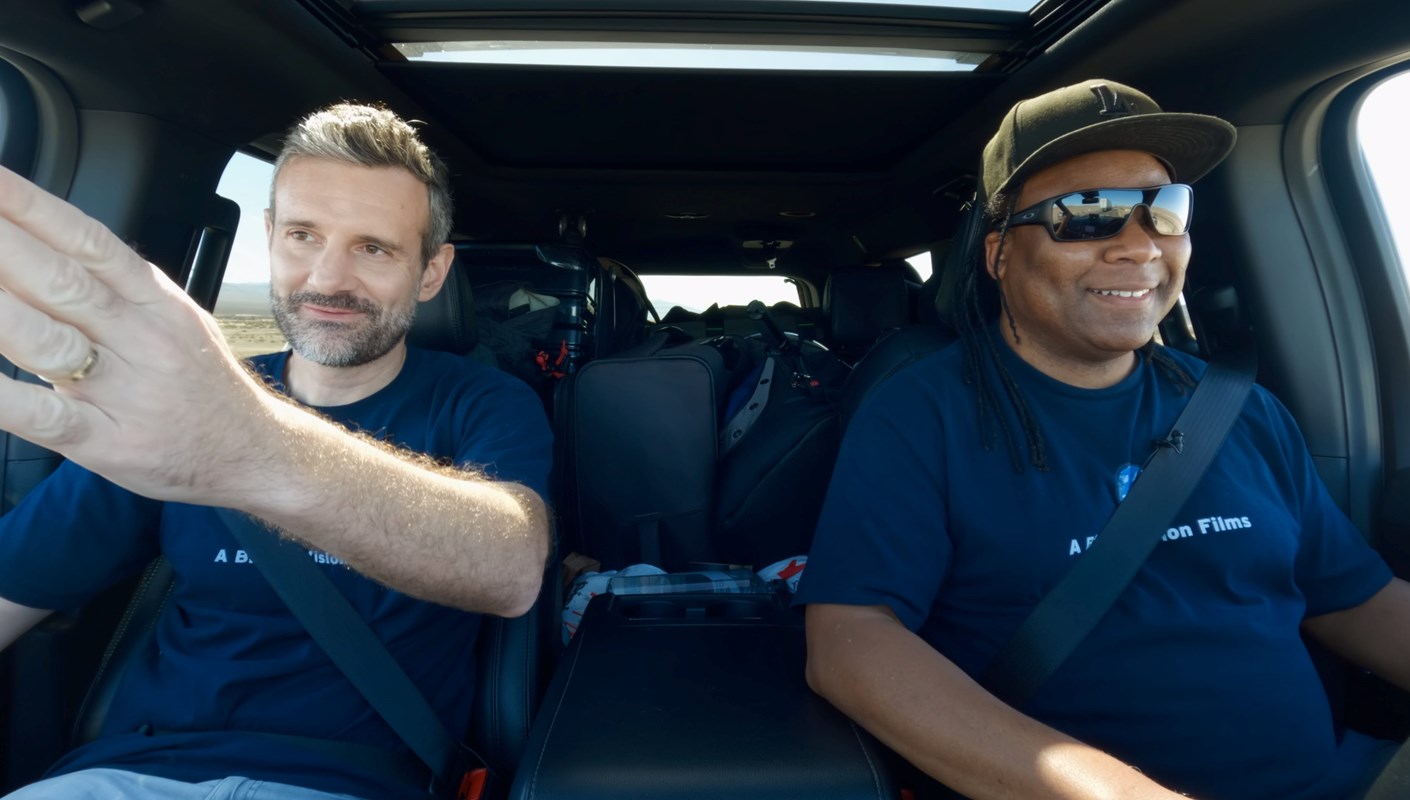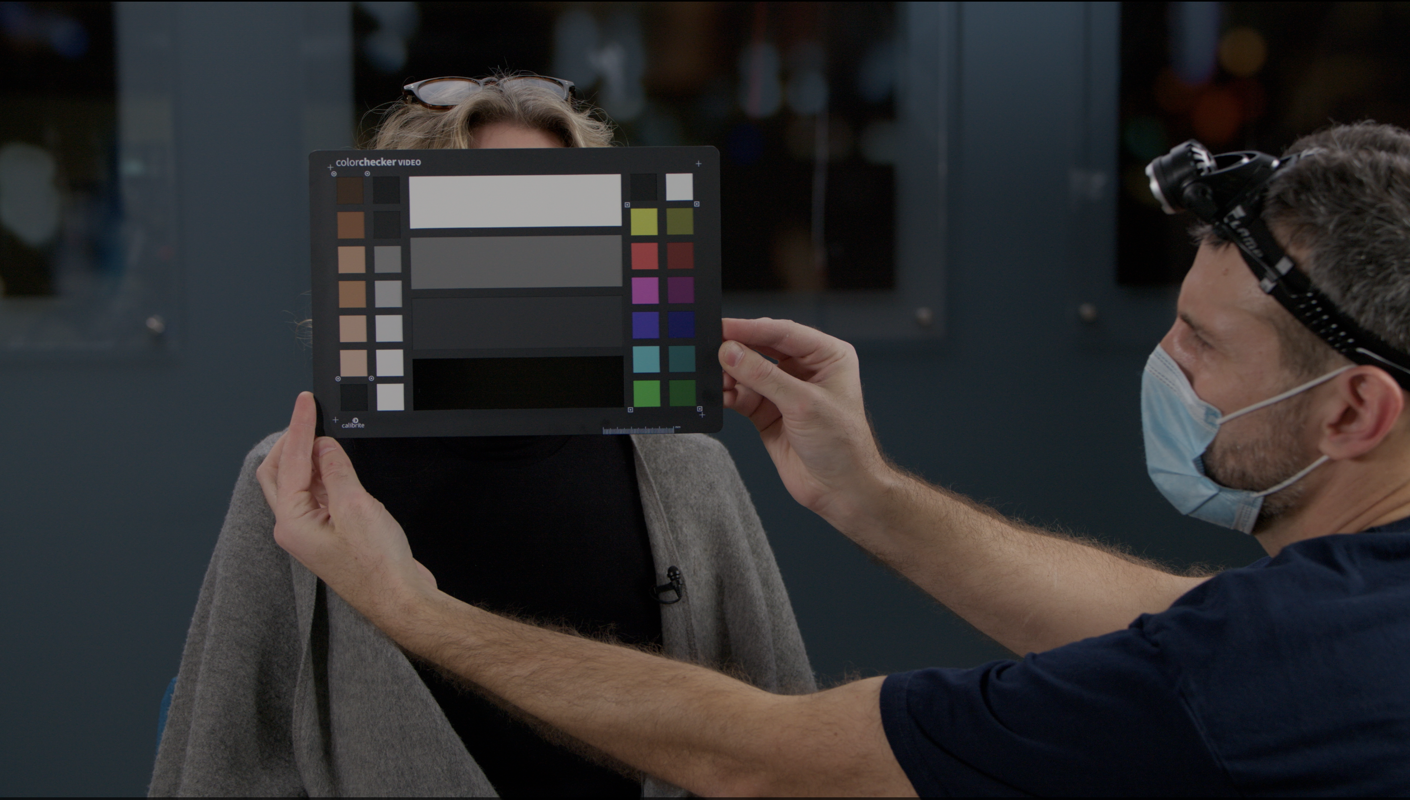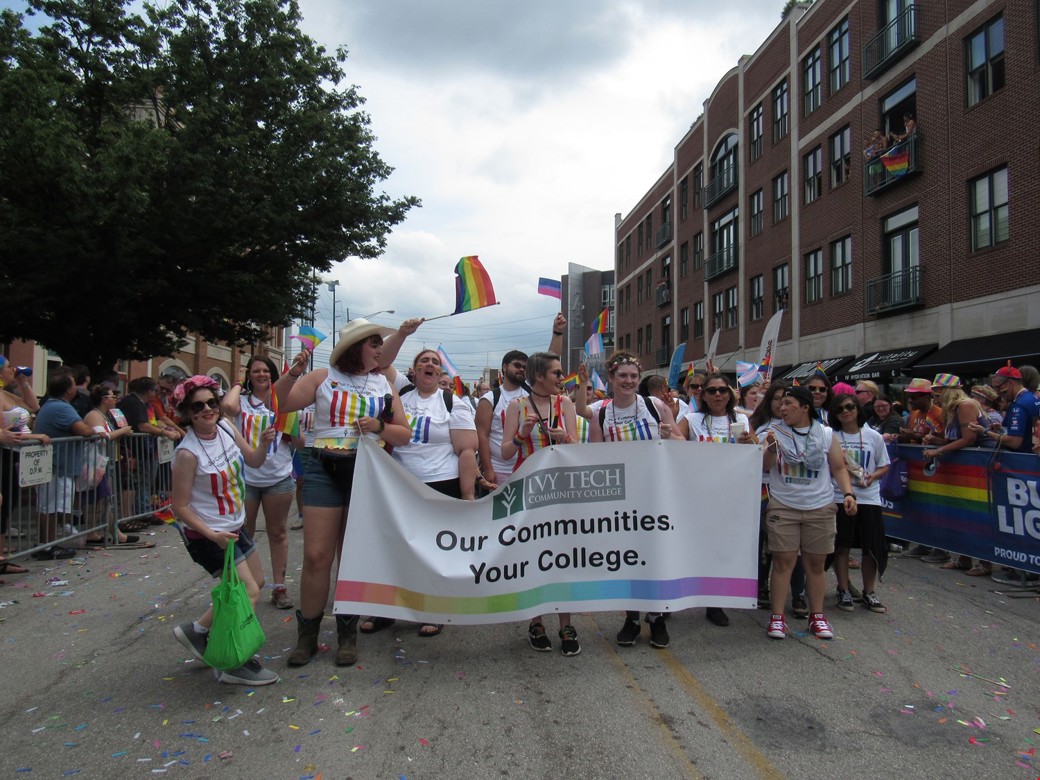Documentarians often take years to film, produce, and edit a body of work.
Tim Hashko, a cinematographer working in the documentary industry, is no exception.
“Beyond the Bridge: A Solution To Homelessness,” a highly-anticipated project Hashko has been working on, took the last four years to film. He’s currently in the postproduction process, editing the film, which will take about a year to finish.
“We decided to start walking down this path back in 2017,” Hashko said. “So that's how long it takes to develop ideas, to build a network of supporters, and fundraise.”
Hashko has grown accustomed to systems and processes requiring longevity, so much so that it might be built into his persona.
“It's a two-year school, but I went to Ivy Tech for five years. I was a full-time student,” Hashko said.
Hashko, from the Eastern European country Belarus, grew up during the Soviet Union.
Following its collapse, he traveled to the United States as a foreign exchange student in 1998, settling in with a host family in Whiteland, IN.
After moving back to Belarus in 1999, he would return in the summers. Then, in 2003, he permanently moved to the U.S. and settled in Indianapolis, where he began his higher education journey at Ivy Tech.
Hashko wasn’t sure what he wanted to study. The International Student Advisor at the time suggested visual communication, and he said, “sure.”
One of the first classes Hashko took was Introduction to Video, instructed by John Perez, who is now the Program Chair of Visual Communications.
“I took that class ... and I was reminded of my childhood dream,” Hashko said. “A dream that I had to become a filmmaker.”
“I remember I was watching the Oscars ceremonies as a kid,” Hashko started saying, reminiscing. “Occasionally, things like the Oscars, they would show them, and I would be looking at those worlds and thinking, ‘wow, this is cool. I would like to be a part of it.’ But as I grew up, the dream was quickly forgotten. Because over there, people don’t tell you that you can be anything you want. It’s only when you come to America they start to tell you, ‘oh, you can be whatever you want.’”
Hashko said that as long as he was in school, he could stay in the U.S. legally with a student visa.
He didn’t skate by, by any means, and over the course of five years, he maintained 12-credit hour semesters, enrolled in a wide variety of courses, learned how to draw, and graduated with two degrees. Both of his associate degrees from Ivy Tech were in visual communication, one for graphic design and the other for web design.
“Ivy Tech gives you a foundation if you seek it,” Hashko said. “I came into this world of visual communication and design and didn’t have any background in that. So for me, somebody needed to explain the very basics.”
During his time at Ivy Tech Indy, he appreciated his professors, such as Perez, Rebecca Bilbrey, Allen Lewis, and Stephanie Robertson, for their patience and thoroughness.
He recalled pushing off a Basics to Drawing course because he harbored some pretty harsh childhood memories.
“Growing up in the Soviet Union, everybody told me, ‘you cannot draw!’ And I remember I was just terrified of it. And I delayed taking that class,” Hashko said.
Hashko says by the end of the semester, he was drawing sketches of his photos. “If only somebody had explained drawing to me like that when I was a kid,” he said.
“[Other professors] tell you ‘go and do it.’ And then you have to figure everything out by yourself. At Ivy Tech, I felt like if I had a question and they really needed to explain it several times, they would,” Hashko said of his experience at Ivy Tech. “I really enjoyed it.”
Hashko went on to work as a freelance wedding and corporate event photographer and videographer while simultaneously working in the service industry.
Hashko was introduced to the world of homelessness and the people impacted by the systemic issue when he met Indiana-based filmmaker Don Sawyer, the founder of “Bigger Vision Films.”
Sawyer had just finished filming “Under the Bridge: The Criminalization of Homelessness,” about the closing of an encampment in Indianapolis in 2013, and asked for Hashko’s aid in gathering b-roll footage.
“The film made a splash. A little bit here in Indianapolis, but more importantly, on the national stage. It was very popular,” Hashko said. “A lot of communities wanted to screen it because it showed what happens to people who live in the streets, in camps. It was an Indianapolis story, but it resonated throughout the country because that is a story that happens everywhere.”
Under the Bridge was shown all over the country in places like the U.S. Housing and Urban Development (HUD) in Washington D.C. and Harvard University.
One day, after a showing of the documentary at Landmark Theater in Indianapolis, there was a Q&A. Hashko recalled that someone stood up and said, “Thanks for showing us the problem, but what do you suggest we do?” This was a question Hashko says was echoed throughout the entire tour. And this one question became the catalyst for their latest documentary, Beyond the Bridge: A Solution To Homelessness, in which Sawyer and Hashko attempt to find solutions to American homelessness.
“Any social issue doesn’t have an easy solution,” Hashko said. “The easy answer is housing. But there is a lot of nuisance there.”
Resources find that having a housing-first philosophy is the best evidence-based solution to homelessness.
Often, institutions and agencies have a resources-first model, which has been shown and proven to be a failed method.
The housing-first approach is guided by the belief that people need basic necessities like food and a place to live before attending to anything else.
Resources-first approaches provide services for mental health, recovery support, and other such aides in order to get to the root cause of someone’s particular struggle that is leading to them being houseless.
“It’s never black and white,” Hashko said. “A lot of people say they are doing housing first, resources second, but they are not … Housing-first is just saying ‘Listen. Let’s not worry about fixing a person. Let’s just help them live in a place, get them into a place, and then whatever they need afterward, we will support them.’”
Altogether, it's been about six years since Bigger Vision Films started working on Beyond The Bridge. You can learn more about the documentary and watch behind-the-scenes footage on their YouTube page. They look forward to a late 2023 or early 2024 release date, followed by a tour consisting of watch parties.
You can watch Under the Bridge on Amazon Prime. Keep up with Bigger Vision Films, Hashko, and Sawyer on their website or Instagram.
About Ivy Tech Community College
Ivy Tech Community College is Indiana's largest public postsecondary institution and the nation's largest singly accredited statewide community college system, accredited by the Higher Learning Commission. Ivy Tech has campuses throughout Indiana and also serves thousands of students annually online. It serves as the state's engine of workforce development, offering associate degrees, long- and short-term certificate programs, industry certifications, and training that aligns with the needs of the community. The College provides a seamless transfer to other colleges and universities in Indiana, as well as out of state, for a more affordable route to a bachelor's degree.








